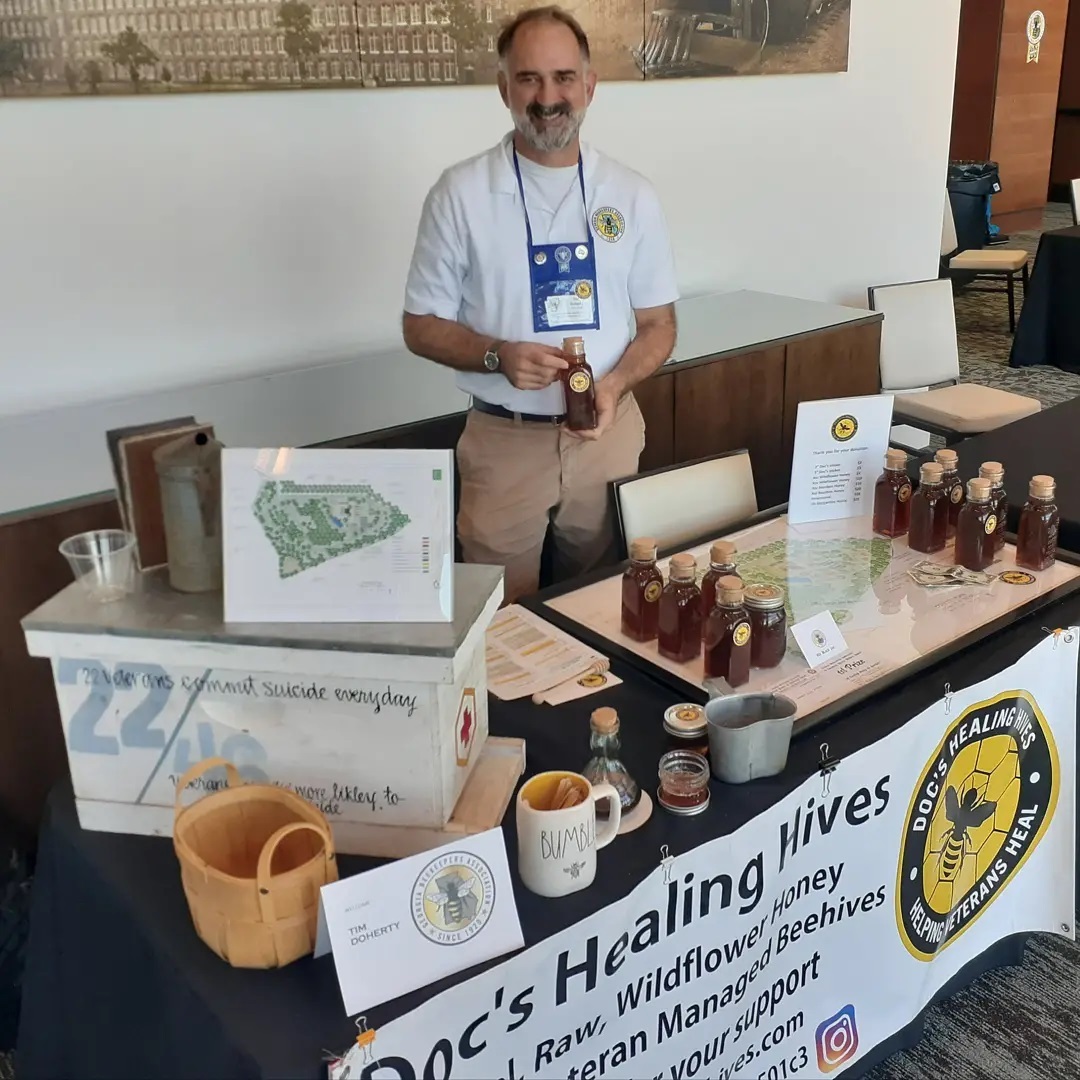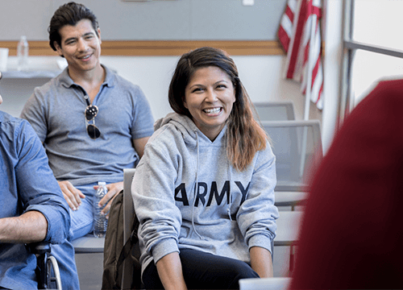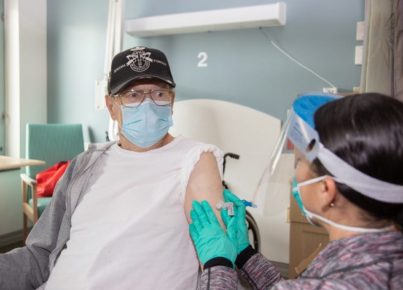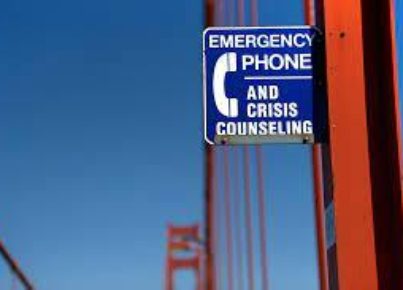After 33 years of service, Lieutenant Colonel and an assistant principal of an Fulton School Tim Doherty has shifted his focus to agriculture, beekeeping and its therapeutic benefits for vets.
As pandemic restrictions eases, longtime educator Tim Doherty of Sandy Springs, Fulton is back in the classroom. These classes are for his fellow military veterans about the joys and therapeutic value of beekeeping.
When he’s not putting in 50 hours a week as an assistant principal at Fulton County’s Riverwood International Charter School, Doherty is plotting the post-pandemic reinvigoration of his project, Doc’s Healing Hives. He started the project in 2017. His aim is to teach other vets about the sweet rewards of beekeeping that go beyond honey and money. To date, 65 veterans have gone through his one-day or weekend classes.
Doherty knows first-hand the therapeutic value of keeping bees. He returned in 2016 from a one-year tour of duty in Afghanistan. He had a torn rotator cuff, an injured bicep, a mild traumatic brain injury, and some of the stresses that many veterans feel readjusting to civilian life. “I had struggled, and I’m still struggling, transitioning back off my deployment,” he said. “I started beekeeping for my own therapy.”
Disabled veteran Sue Davis of Traveler’s Rest, S.C., was in Doherty’s class in 2018 and considered it a game-changer. Above all, Doc’s Healing Hives really does help veterans heal by several ways. “These courses help giving us a purpose, something to care for, connection to other people, and peace,” said Davis. As a result Davis now owns seven hives of her own and manages two others for a nearby tiny-home community.
Unfortunately, the pandemic forced Doherty to stop holding his beekeeping workshops. Then he decided to use the downtime to create a learning center on a farm he owns in Morganton. He hopes to resume classes there this fall or no later than next spring.
Beekeeping for veterans is not a new idea
In fact, Doherty is hardly the first to see the potential benefits of beekeeping. As far back as 1919, the US government recommended that troops returning from World War I, especially those with disabilities, consider beekeeping as a profession. The Department of Veterans Affairs currently offers beekeeping classes at several of its medical centers as part of its recreational therapy programs. Some participating vets report that beekeeping has improved their social connections and helped decrease their depression and post-traumatic stress. (continue reading)







You must be logged in to post a comment.